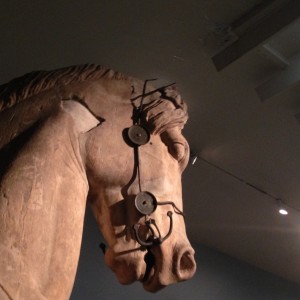 This fall, five patients will argue that they came to serious, permanent suffering because Canada makes it illegal to purchase healthcare.
This fall, five patients will argue that they came to serious, permanent suffering because Canada makes it illegal to purchase healthcare.
Dr. Brian Day, an orthopaedic surgeon and past President of the Canadian Medical Association, wrote an uncommonly direct assessment of healthcare in Canada. I include the full text below from the Canadian Constitution Foundation website. Here is the link to the original article: Brian Day: 30 years of health-care dysfunction » theCCF.ca.
All sides will be watching this. Expect to hear more about it in September.
Dr. Day writes:
Thirty years ago today, on April 1, 1984, the Canada Health Act became law. We can be forgiven for wondering if the date and year were coincidental, or chosen in honour of April Fools’ Day and George Orwell’s novel, respectively. Canada’s Medicare laws have many Orwellian features, including names such as the B.C. “Medicare Protection Act” and the Ontario “Commitment to the Future of Medicare Act.” Citizens face severe punishment for disobedience. Ontario can issue fines of $25,000 on patients suffering on wait lists, or corporations who expedite their care. In Alberta, a clinic which allows access to non-government care can be fined $100,000. The most authoritarian governments on Earth have no such prohibitions.
The Act has been a godsend to bureaucrats, who have led the fight to maintain the resources and power that goes with control of the biggest budgetary item in every provincial government. I admire the skill with which they have manipulated both the public and elected politicians. The fact that Canada has 11 times as many public health bureaucrats per capita as Germany attests to the creative skills of the Canadians.
Dr. Max Gammon once described the British National Health Service as “a huge culture medium for the uncontaminated growth of bureaucracy” that will “grow indefinitely and approach ever more closely to the perfect blackhole state in which its externally supplied resources are entirely consumed by its furious internal activity.” Britain’s NHS is, by comparison with Canadian Medicare, a lean, mean machine.
The North Korean national airline, rated the world’s worst performing carrier, operates on remarkably similar principles to our health system. Air Koryo extracts funds and dictates spending; sets prices while owning and controlling the facilities; decides where services will be located; trains, employs, regulates and funds the workers; governs how, when and where clients are served; determines the level and quality of services; self-regulates, self-evaluates and outlaws competition. Canada’s “Koryocare” health-care model is a remarkable government achievement, but it must be replaced with a patient-focused system that includes competition, excellence and efficiency.
The Canada Health Act requires that care must be comprehensive, universal, portable and accessible, as well as being publicly funded and administered. Governments ignore the first four principles, but ardently enforce the last. “Medically necessary” care must be covered under the Act. It is deliberately not defined. “Reasonable access” translates to care given when government, not the patient or doctor, deems it appropriate. The Act has limited the ability of provinces to adapt to the modern era of medicine.
Governments allow us to spend on gambling, smoking, and drinking, but not on our health
Politicians and trade union leaders often bypass wait lists, turning to the private sector when they or their families need care. They enjoy private insurance for themselves, which covers ambulances, prescription drugs, prosthetic limbs, braces, dentistry and physiotherapy. Thirty percent of Canadians lack this insurance and have inferior coverage. In Canada the lowest socioeconomic groups suffer from the poorest access and have the worst outcomes. An Italian health law expert recently characterized Canada as being hostile to the poor and underprivileged, describing our Medicare as “tailor made for very rich people who can get medical care abroad.”
We do not provide equitable basic health care for all. Our approach of forcing a runner with sore knees or a golfer with a sore shoulder into a queue that includes patients with serious illnesses makes no sense. Equally nonsensical is the fact that governments allow us to spend on gambling (lotteries and casino revenues are a major source of health funding), smoking (cigarettes or marijuana), and drinking (alcohol bought at government facilities), but not on our health.
Sir William Beveridge, founder of the British National Health Service, stated: “The State, in organizing security, should not stifle incentive, opportunity, responsibility; in establishing a national minimum, it should leave room and encouragement for voluntary action by each individual to provide more than that minimum for himself and his family.”
We believe that governments act unlawfully when they promise but fail to deliver timely care, and at the same time outlaw other options
Our constitutional challenge includes five plaintiffs (a sixth with brain cancer has sadly died), all of whom have suffered significant harm while waiting for care. One plaintiff, a previously active teenager, languished for 27 months waiting for spine surgery, and is now paralyzed for life. The outcome he suffered would not occur in any other developed country on Earth.
Every other country offers options for non-government care. Our current laws allow injured workers, RCMP officers and members of the armed forces, not to mention foreigners and federal prisoners, such rights. We will plead with our judge that free Canadians should be granted the same rights as those in jail.
We believe that governments act unlawfully when they promise but fail to deliver timely care, and at the same time outlaw other options. In 2014, we hope the Canadian justice system will emancipate patients from their medical enslavement. Laws that force sick or injured Canadians to wait, suffer, and sometimes die must be struck down.


